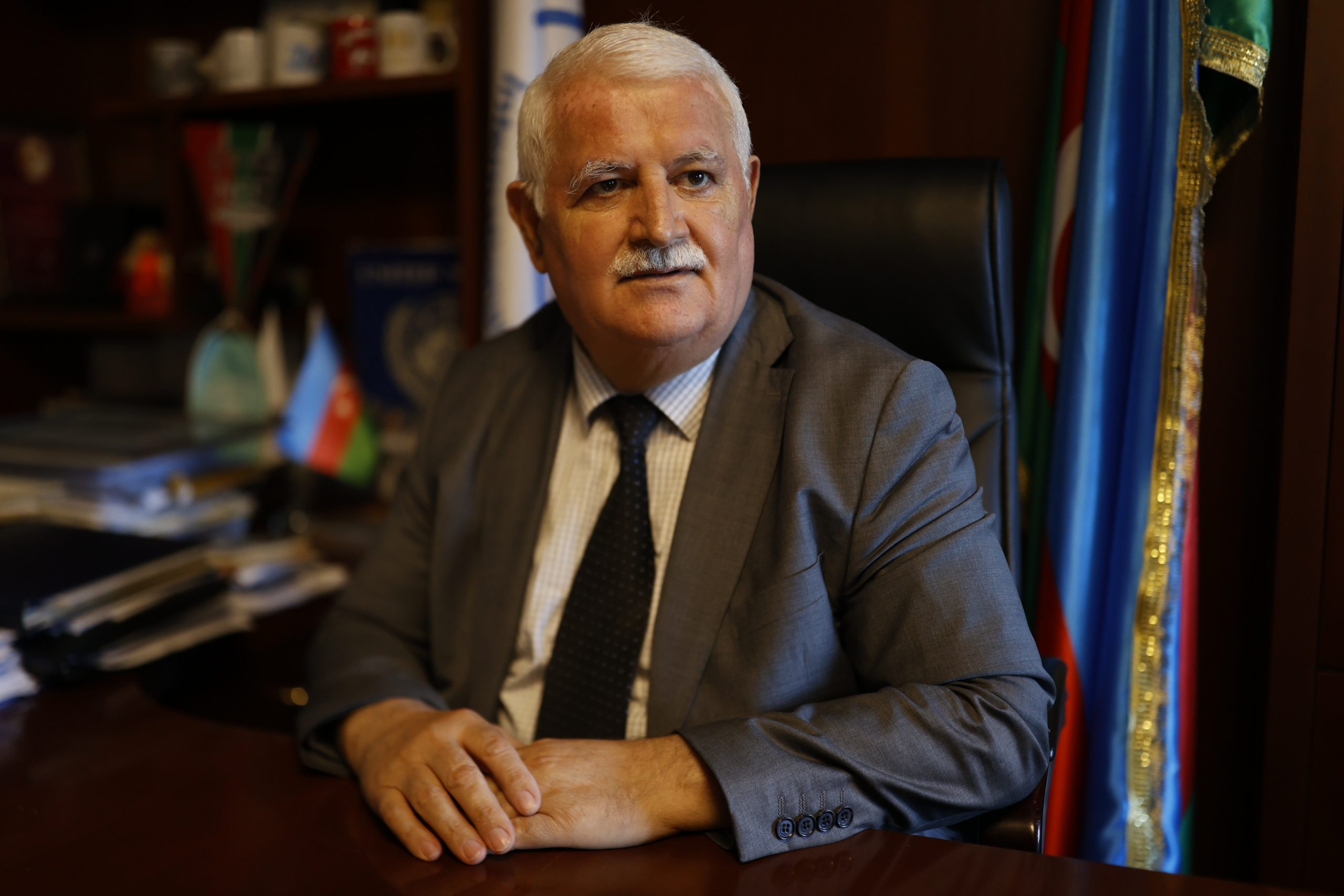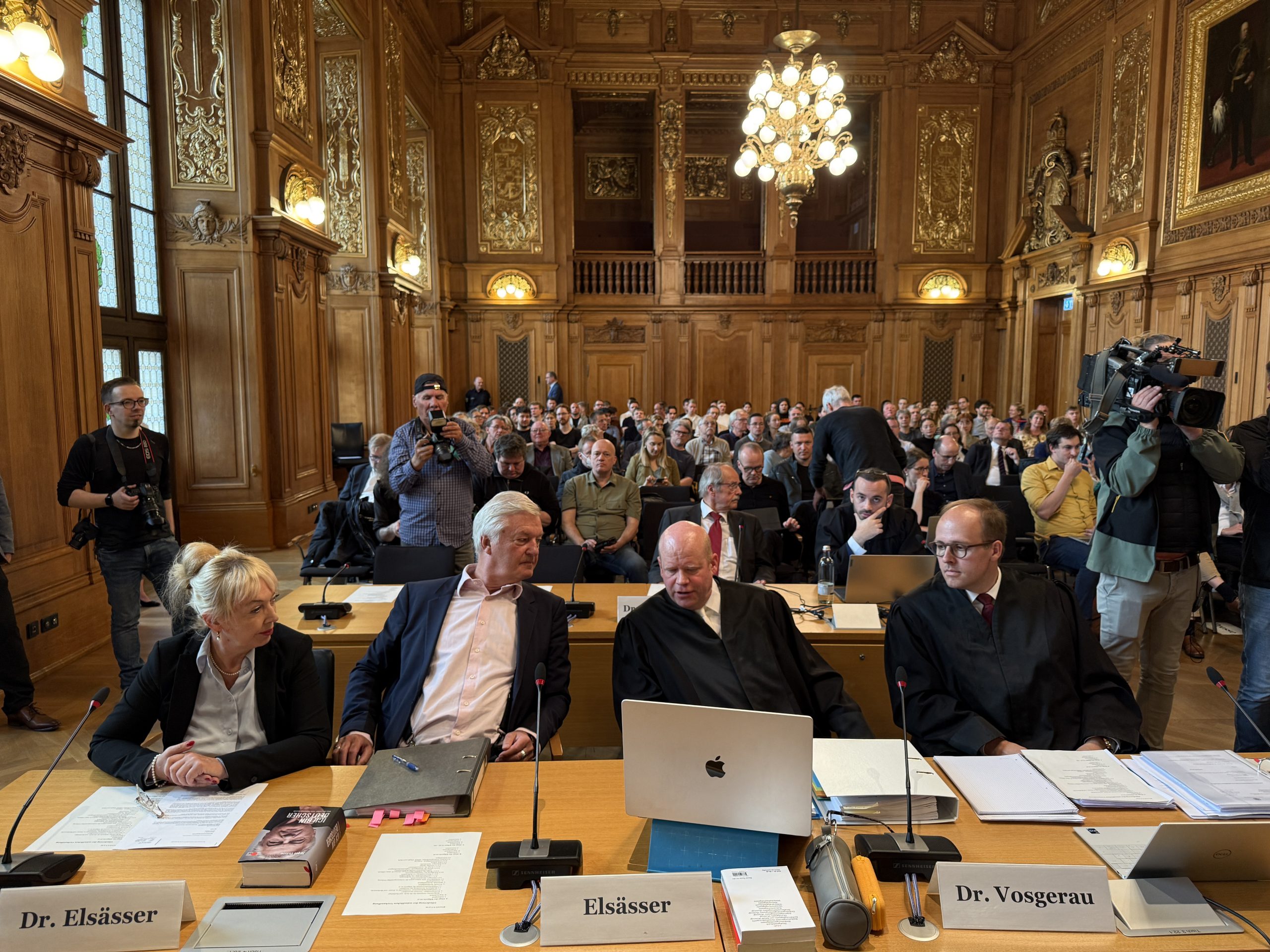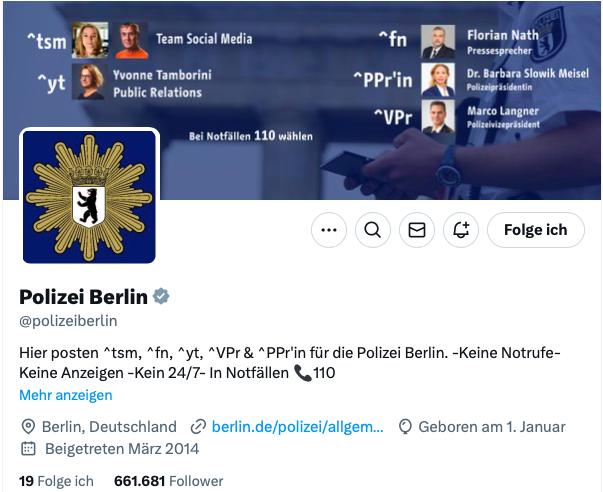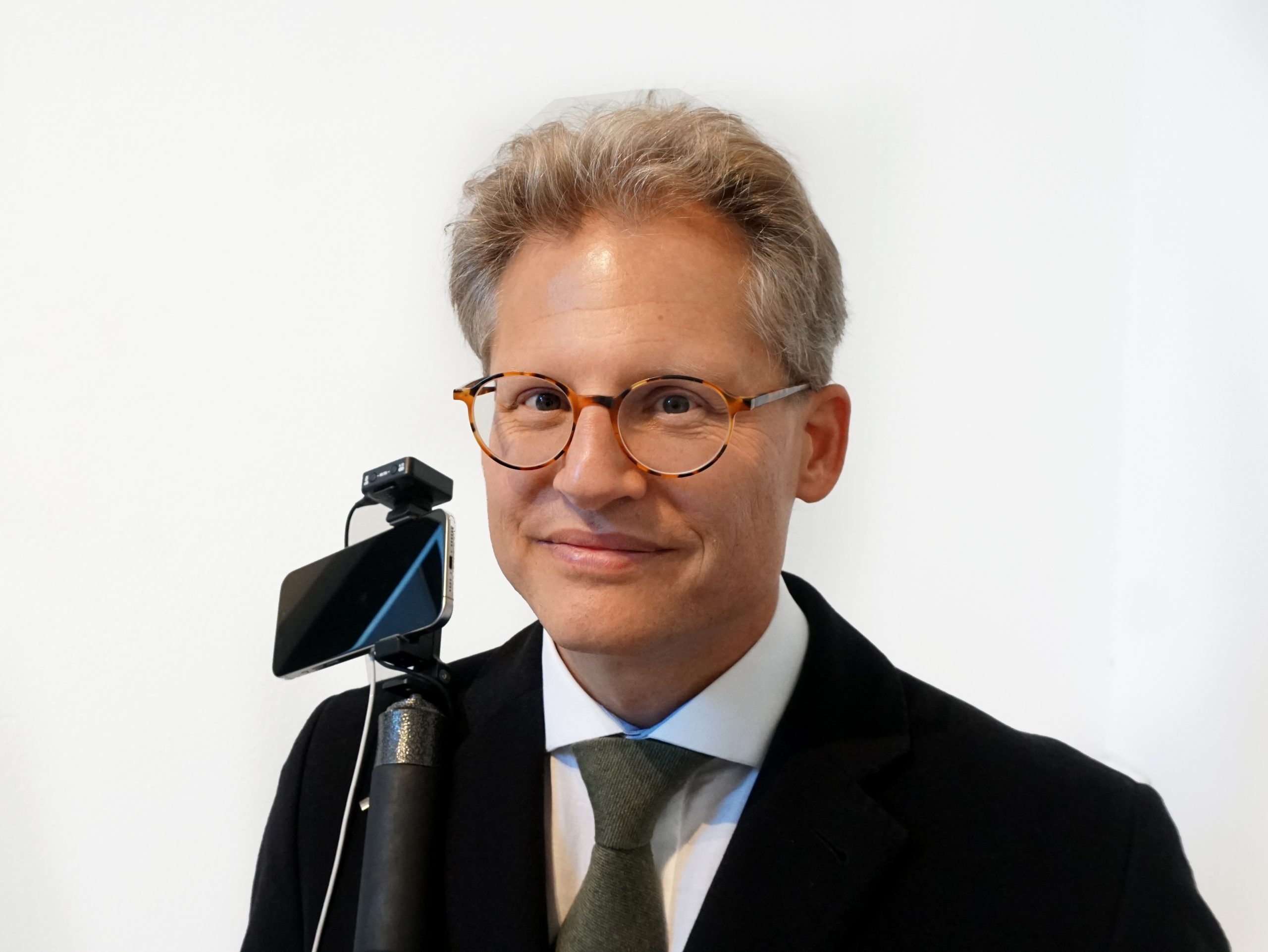Karabakh is my homeland but my house is destroyed
Interview with Umud Mirzayev, President of the International Eurasia Press Fund (IEPF), an independent non-governmental organization founded by a group of journalists from different countries, based in Baku, Azerbaijan.
– You are from Karabakh but you lived in Moscow and Baku. Please tell us your story.
– I was born in 1961 in Karabakh, in the village of Ashagi Abdurrahmanli, Fuzuli district, and I grew up there. In 1982–87, I studied at the Institute of Literature named after Maxim Gorky in Moscow. It was a small institute. However, due to its scale, it was once a prestigious educational institution in the USSR. There were students from all over the world. About 70–80 people were admitted there every year. During this period, the collapse of the Soviet Union had already begun. Ethnic conflicts broke out on all sides of the Union. Ethnic conflicts were raging in the Baltics, Central Asia, Chechnya, and the South Caucasus—in short, the entire region. At that time, one of the most serious conflicts was in the South Caucasus, in the Karabakh region. My groupmates often called me and asked what was happening in Karabakh.
At that time, large rallies for independence began in Azerbaijan. Also, by order of the Kremlin, separatists from different parts of the world, including Armenia, gathered in Karabakh. People living in peace were deliberately made to fight each other. Day by day, the Armenian-Azerbaijani conflict was flaring up in Karabakh. I always invited my friends who asked me questions to the conflict zone. I have always told them to come here and see the problem with their own eyes. Speak to the press and inform your surroundings about the events. At that time, I met all our friends who came to Azerbaijan alone with my car; I made it possible for them to stay at my house, and I organized their visits to Karabakh. At the same time, I provided them with the necessary literature so that they would have detailed information about the situation. We were in frequent contact with our student friends who studied in Moscow. In the early 90s, we organized regular meetings with them and held certain discussions. In 1992, we decided to establish the International Eurasia Press Fund. On June 22 of the same year, we held the founding meeting of this organization with our colleagues from more than twenty countries, and IEPF was registered on September 4. Our goal was peace and harmony. We wanted people within the scope of the USSR not to enter into conflict, and we were trying to improve relations. Unfortunately, the conflict in this region is increasing day by day. Since 1992, our initiative has been to organize the visits of journalists, creative people, and people’s diplomats to the conflict zones and disseminate objective information from those regions. Because at that time, after the collapse of the USSR, there was a lot of disinformation. Most of the disseminated information passed through Kremlin filters and was transmitted to society and the international community in a completely different way. The Soviet KGB had a special role here. After starting the activity, we organized more than 100 visits for our journalist colleagues to different regions. Since I was the main initiator of the organization, it was decided to register the organization in Azerbaijan. Today, IEPF is one of the highest-status institutions in the UN, an organization that has developed a fairly serious reputation due to its status and the projects it implements in the post-Soviet space.
We operate in five directions:
We have projects related to media and civil society organizations, peacebuilding and conflict studies, refugees and internally displaced persons, community development, and education. Most of these projects are aimed at eliminating the disasters caused by the war. Peace is the basis of all our activities. As I mentioned, I was born in Karabakh. Karabakh has suffered a lot in the last 30 years. Many of my relatives, friends, and childhood friends were displaced. The village of Ashagi Abdürrahmanli, where I was born and grew up, was one of the villages that was under occupation for 30 years. Today, there is nothing left in those villages that were freed from occupation. It reminds me of the ruin. By the way, I should mention that my mother was born in Zangezur, and she is of West Azerbaijani origin. All my mother’s relatives were deported from Armenia at the end of the 80s.
In November 1989, more than 300.000 Turks were deported from Armenia and displaced from their lands. Their arrival in Azerbaijan or going to different parts of the world was a big disaster for Azerbaijan. This event was one of the points that caused tension at the beginning of the Karabakh conflict.
Last year, we celebrated the 30th anniversary of our organization. For 30 years, all our activities have been focused on peace. We tried to return displaced people to their lands. It is a pity that neither international organizations nor Armenia accepted Azerbaijan’s position on this issue. No steps were taken to implement the four UN resolutions. In 2020, Azerbaijan was forced to liberate its lands through conflict. Thankfully, this war was short-lived. The losses were undoubtedly high, but the President of Azerbaijan stopped the war by being humane and prevented the number from increasing. The war was stopped on the condition that the armed separatists leave Karabakh, but unfortunately, the separatist forces have not been removed from there to this day.
-What kind of information would you provide to in order to provide a whole picture of the current conflict?
-As I mentioned above, I have been representing civil society organizations for 30 years. Since 2007, IEPF has been an organization that has gained the status of a UN consultant. Last year, we held very big events at the UN. Unfortunately, there are double standards in the world. The world is not in a fair position with regard to Azerbaijan. Our lands were occupied in 1992. Azerbaijan lost more than 20% of its land, and over 1 million people became refugees. In order not to provide humanitarian aid to our country, the USA adopted and applied the 907th Section to Azerbaijan. As I mentioned, more than 300,000 Azerbaijanis were deported from Armenia. The world did not see it. The countries that showed their position and made decisions were blinded and deafened. In these 30 years, there has been no one who has given support to our problems and voices. We went through very difficult days and suffered. In the end, Azerbaijan decided to liberate its lands from occupation at the expense of its resources and potential. We know that the world is governed by interests. The organization of the OSCE, called the MINSK Group, used to make tourist trips here. They received many awards from Armenia, had feasts here, and continued on their way. Until now, the OSCE has not made even 1 centimeter of progress to end this conflict. One of the main players in that MINSK Group was France. The main problem here is that ordinary people are suffering because of the interests of the big powers. This is very unfortunate. I regret that the attitude towards Azerbaijan has not changed yet. The superpowers of the world, especially France, are working every day to continue and rekindle this conflict. I want to mention one thing: today, Azerbaijan has become a country with sufficient potential, resources, and defense capabilities. Azerbaijan is not the Azerbaijan of 10–15 years ago. Azerbaijan will not give its rights to anyone from now on. Because it has sufficiently resistant people, an army, and mentors who can speak out in the international community.
Azerbaijan is very important in terms of its geostrategic location. The Baku-Tbilisi-Ceyhan oil pipeline as well as the „One Belt One Road“ Initiative is important for regional powers as Russia and China Which role does Karabakh play in these geostrategic projects?
– You very rightly emphasized that the strategic position of Azerbaijan is one that goes beyond the interests of the world. Everyone has an interest in this region. I believe that if peace comes to this region, everyone can benefit from the opportunities created by Azerbaijan. Armenia can especially benefit from this. Armenia is a country with closed access to the whole world and a poor economy. Therefore, Armenia should be more interested in such issues. Construction of these roads passing through Azerbaijan will benefit Armenia. On the one hand, Azerbaijan is a region connected to the interests of China, India, Russia, Central Asia, and the Arab world. Corridors of both major transport routes and energy resources are located here. That’s why I think that the implementation of these big projects, which are of interest to the world, can quickly bring peace and prosperity to the region. Azerbaijan implements a dynamic policy in these matters. In particular, there are countries that prevent the creation of such projects. Those countries are also trying to continue the conflict.
– You mentioned that your mother is Azerbaijani but was born in Armenia. I know that there are many Armenians and a famous Armenian church in your country near your office. Do you think it is possible for both Armenians and Azerbaijanis to live in the region at the same time, that is, in normal coexistence?
– Dear Martin, indeed, my mother is an ethnic Azerbaijani from Armenia. She is one of hundreds and thousands of deported Azerbaijanis. She was born and raised in Zangazur. It is a pity that all our relatives were displaced from the place called Sisian (Garakilsa). However, I want to emphasize one thing: Azerbaijan is a tolerant country. Thousands of people of different religions and languages live in Azerbaijan. In other words, there is never a question of condemning someone because of their ethnicity in Azerbaijan. The separatists invented the Armenia-Azerbaijan problem. Indeed, according to statistics, more than 30,000 ethnic Armenians lived in Azerbaijan during this past conflict period. Armenians lived here both during the hottest periods of the conflict and now. In the last 30 years, Armenians have participated in various events in Azerbaijan. There was never any tension between them. The Armenian church also stands in the center of Baku. However, it is a pity that there are no remains of many mosques in the occupied Karabakh, as well as in Yerevan, the capital of Armenia. Pigs and other animals were kept in most of them. A very disgusting step has been taken. It is very sad to keep pigs and cattle in such temples. Most of them were destroyed. Imagine that more than 150,000 settlements—more than 900 settlements, villages, and cities—were destroyed in the Karabakh region alone. Today, Karabakh is being rebuilt and restored. On August 23, on the eve of the occupation of Fuzuli, 144 families in the region were given new apartment keys. I was a participant in the event as one of the representatives of that region. Of course, I believe that peace will come to Karabakh. It is not far away. During these 30 years, I did not doubt even for 30 seconds that we would return to our lands. I knew and believed because we were fair. We wanted what was ours; we didn’t care about someone else’s. You know, life is beautiful when you are satisfied with what you have. I would like to end my thoughts with this.






